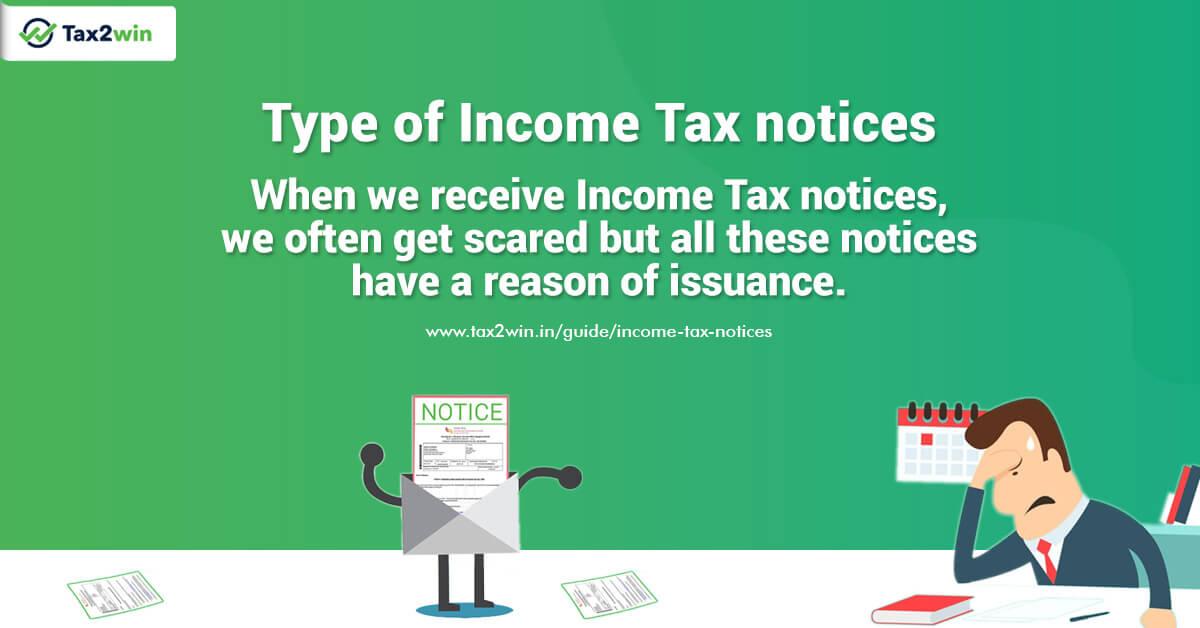
What Does a Notice Sent u/s 143(2) Mean?
When the income tax department identifies discrepancies in the ITR, whether minor or major, it can issue a notice u/s 143(2). The discrepancies in the ITR might include under-reporting of income or over-reporting of losses. It is a notice for scrutiny assessment. In other words, a scrutiny assessment notice signifies that the income tax authorities have identified certain issues in your ITR on which you need to provide further clarification. It is conducted to verify the correctness and genuineness of various deductions claimed by the taxpayer in the ITR.
- 50 ന്റെ നിറവിൽ പരിസ്ഥിതി ദിനം; എന്ത്… ? എന്തിന്…?
- Karnataka Class 10 Hindi Solutions वल्लरी Chapter 7 तुलसी के दोहे
- दुनिया के 10 सबसे बड़े देश कौन-से हैं, देखें लिस्ट
- 50+ Wild Animals Name in Hindi and English | जंगली जानवरों के नाम
- Ugadi 2024: క్రోధి నామ సంవత్సరం గతంలో ఎప్పుడు వచ్చింది.. తెలుగు సంవత్సరాలు పేర్లు.. అర్దాలు ఇవే..
When is Notice u/s 143(2) Issued?
Notice u/s 143(2) is issued to you by the Income Tax Department when your Income Tax Return is selected for scrutiny assessment or detailed assessment u/s 143(3).
Bạn đang xem: Income Tax Notice u/s 143(2) for Scrutiny Assessment – How to Respond?
In simple words, Scrutiny assessment or detailed assessment u/s 143(3) means scrutiny is carried out to confirm the correctness and genuineness of various claims, deductions, etc., made by you in your Income Tax Return. The basic purpose of this scrutiny assessment is to ensure that you have filed the return with the correct income and paid the tax accordingly.
Xem thêm : Essay On Pandit Jawaharlal Nehru – 10 Lines, Short And Long Essay
The objective of this scrutiny is to check that:
- You have not understated your income
- You have not computed excessive loss
- You have not underpaid the tax in any manner
- Any mismatch in Income figures
- High value transactions
- Or any other defect in the ITR
So, we can conclude to carry out scrutiny u/s 143(3) of the Income Tax Act, notice u/s 143(2) is issued by the Income Tax Department. Such notice can be issued within three months from the date on which the financial year ends.
For example, if the ITR was filed on 31st July 2024, then the financial year 24-25 will end on 31st March 2025. The notice under section 143(2) can be issued within 3 months of the end of the FY in which the ITR is filed. Therefore, the notice cannot be issued after 30th June 2025.
What is the Time Limit for Issuance of Notice u/s 143(2)?
Xem thêm : How much money can you earn with 1 lakh subscribers on Youtube?
A notice u/s 143(2) of the income tax act for scrutiny assessment can only be issued up to a period of three months from the end of the financial year in which you furnished the return. (before 1 st April 2021, the limit was six months from the end of the financial year)
What Should You Know About Notice u/s 143(2)?
- You might receive a notice in PDF format via email.
- If you have not filed your ITR, then you cannot receive a notice under section 143(2). The assessing officer first has to issue a notice u/s 142(1), under which you might be asked to file returns.
- Under the Faceless Assessment Scheme, the income tax notices are uploaded directly to the income tax portal, which can be checked by logging into your account. You will also receive an email intimation and an SMS for the issue of such notices.
- After receiving a notice u/s 143(2), you have to produce all the documents supporting deductions, reliefs, allowances, exemptions, and other claims made while filing returns.
- You have to provide proof of all the income sources.
- The assessing officer performs a detailed enquiry of the notice.
So How Does Notice u/s – 143(2) Work?
Step 1 A notice under section 143(2) is issued to you by the AO within 3 months from the end of FY in which a return was filed to carry out scrutiny of your income tax return u/s 143(3).
Step 2 You or your tax representative will appear before the AO to place your arguments and evidence as required by the assessing officer.Alternatively, you can submit an online response to notice under section 143(2) by uploading your evidence and arguments.
Step 3 After hearing all the evidence, as produced by the assessee as per notice u/s 143(2), AO will pass an assessment order determining the total tax payable or refund to the assessee after taking into account produced evidence.
Nguồn: https://nanocms.in
Danh mục: शिक्षा









